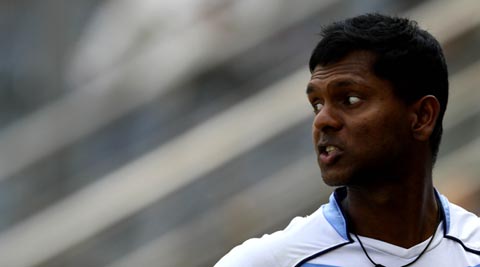
Shivnarine Chanderpaul wants a grand farewell at the end of a long-winding yet prolific career. He’s ploughed away for 21 years, played more Tests for the West Indies than any other player, averaged more than Viv Richards and Clive Lloyd, and is only 86 short of eclipsing Brian Lara’s record for most runs by a Caribbean batsman. Yet he’s remained an outsider, more ostracised than admired around the islands, except in his native Guyana. The late 1990s were considered the era of the Prince (Lara) and the Tiger (Chanderpaul). But Chanderpaul always played second fiddle.
He remained in the shadows even as he shouldered the burden of run-scoring for his team once the Prince had exited the stage. A farewell series against Australia would have allowed him an opportunity to get one up on Lara, and have the limelight in his final act. Of course, he could have made it easier for the selectors by being among the runs, which hasn’t been the case for over six months.
Longevity in sport is much admired, revered even. But things get thorny when the sands of time in a legend’s career are running low, and the onus is on him to call it quits. That’s where farewells help. They provide closure. Unlike Chanderpaul, who has always polarised opinions across the Caribbean, Sachin Tendulkar was a national icon. It seemed only natural, for him and the country that adored him for 24 years, that he should be sent off in a blaze of glory. Even so, there were some who twitched their noses at the extent of the ballyhoo. Just as many felt that the outpouring for Steve Waugh was a bit too ostentatious when he had the entire 2003-04 Australian cricket summer dedicated to him. Then there are those like Rahul Dravid, V.V.S. Laxman and Sunil Gavaskar, who preferred fading into the sunset without fanfare.
You could ask why two extra matches are needed to celebrate two decades of work. By prolonging the end, many players risk being shoved rather than paraded out. In demanding a send-off, Chanderpaul may have denied himself a more graceful exit.